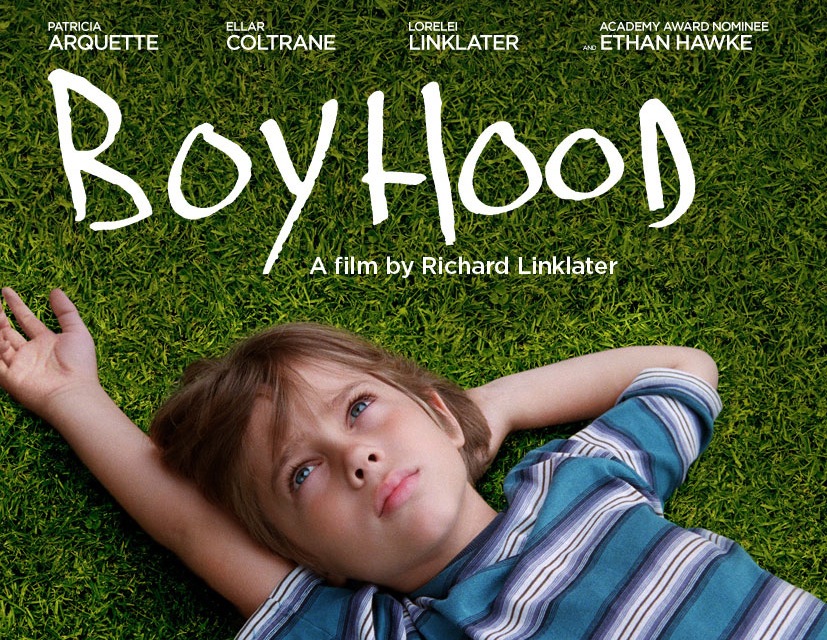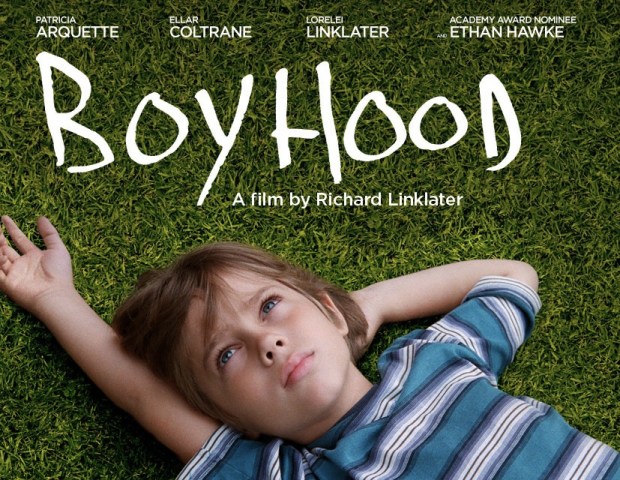Richard Linklater’s Boyhood Is a Real Accomplishment, More Than a Story About a Boy
This is a movie that is worth your time. Roughly twelve years of it.


Richard Linklater’s Boyhood isn’t your typical Hollywood film. It’s not even a typical Linklater film. Boyhood was shot over twelve years, typically one weekend per year, following the life of one boy and his family from first grade through his arrival at college. It was a huge, risky undertaking, but it’s paid off. Boyhood is wonderful.
The story focuses mainly–though not exclusively–on Mason, played by Eller Coltrane. When we first see Mason he is the child of divorced parents living with his mother (played by Patricia Arquette) and sister Sam (Linklater’s real life daughter, Lorelei Linklater) somewhere in Texas. The location shouldn’t surprise anyone familiar with Linklater’s work, but the intense focus on one character might.
Linklater’s other films share a sort of meandering quality defined early on with 1991’s Slacker, which moved focus from one character to the next as they interacted with different people. Even his more intimate films like the Before Sunrise trilogy focus on one relationship, but do so by showing it in many different contexts and through interactions with others. Linklater’s films don’t tend to focus on one main character. Even his studio films are unique–School of Rock focuses less on Jack Black’s character than the group of students he’s teaching.
Boyhood is about Mason. Through him we see how a family changes, and even how a country changes over twelve years. The latter is due largely to some luck on Linklater’s part by selecting cultural touchstones in our nation’s history while they were happening. In Boyhood we see the start of the Iraq war (and how it pans out), Obama’s campaign against John McCain, and the craze over Harry Potter. There’s even a discussion between Mason and his father (Ethan Hawke) about whether there will ever be another Star Wars movie.
The soundtrack isn’t necessarily one I’d want to listen to on its own, but in the context of the film Linklater did an excellent job of picking a song that immediately brought the viewer to a specific year.
As much as the story centers on Mason, it is as rewarding as a viewer to see how the people in his life change over the twelve years as well. When we first see Patricia Arquette as Mason’s mother she is a single woman raising two kids on her own and she’s struggling. Ethan Hawke’s character is the typical deadbeat dad who stops by for occasional weekend visits and to tell the kids what a handful their mother can be.
Both grow as people throughout the course of the movie, but we see it all through the eyes of Mason. It’s not the story of how a single mother gets her life together to raise her children, or how a wanna-be musician learns to become a responsible adult and father. Their stories become Mason’s story because we see how the changes in their lives directly affect his.
We also see Mason growing in parallel to his sister Sam, who is a few years older than Mason. When they’re younger it’s the typical annoying brother v. annoying sister dynamic we’ve seen so many times before, but the approach of this movie to follow actors over 12 years lets us see that relationship grow as well.
Particularly with young Coltrane and Linklater we see huge changes. They grow up in front of you into adults in the course of the movie. During a Q&A with Linklater and Coltrane after the screening I attended Linklater said that for an adult to agree to spend twelve years doing something, it’s with an understanding of how long twelve years is, but for children that’s a very different thing. Coltrane was seven when he was cast. What seven-year-old can tell you when they’ll be doing at 19?
Linklater had a plan going into Boyhood, but he knew he had to be flexible and change with the kids as they grew up. He also informed us that he learned that it’s illegal in the US to contract someone to do anything for longer than seven years, so this entire project essentially relied on handshakes and good faith. Interestingly it was Linklater’s own daughter Lorelei who was the only cast member who tried to back out, at one point asking her father if he could kill off her character.
The method of Boyhood is arguably an insane undertaking, but the result is a film that feels as much like watching a child and family grow up as you’re likely to get without having to actually raise a child. It’s moving, and funny, and sad, and uncomfortable, and all the feelings a child feels growing up. Coltrane didn’t watch any footage from the movie until it was finished, and he said he was floored by it for a few days. It was most of his life laid out in 166 minutes. The story is fiction, but we as an audience are really seeing this actor grow up. I was a little floored my self.
Boyhood is in select cities today and opens nationwide on July 18th. You should go see it.
Now the only problem will be convincing Linklater to spend the next 12 years making a sequel.
(via Boyhood)
Are you following The Mary Sue on Twitter, Facebook, Tumblr, Instagram, & Google +?
Have a tip we should know? [email protected]